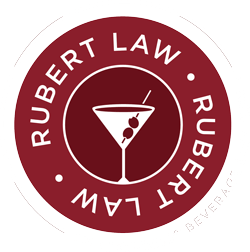An End of The Tourism Exception:
By July 1, 2015 Florida breweries will no longer have to depend on the “Tourism Exception” to sell beer directly to consumers. Senate Bill 186 amends Florida Statute § 561.221(2)(a). Under the former statute, the State’s Division of Alcoholic Beverages and Tobacco (DABT) had the authority to grant a vendor’s license to manufacturers of malt beverages (beer), if the property “promoted the brewery and the tourist industry of the state.” In Senate Bill 186, the Florida legislature struck this requirement as a result of numerous battles between breweries attempting to obtain vendor’s licenses, and distributors looking to prohibit breweries from circumventing Florida’s stringent three-tiered system.
Where did the Tourism Exception come from?
In 1959, Busch Gardens came to Tampa, Florida as a brewery for Anheuser-Busch. Visitors could visit the brewery and consume malt beverages on-site, but were prohibited from purchasing the beer for off-site consumption. In the 1980s, the State wanted to bring revenue and tourism to South Florida after suffering an economic downturn and negative media publicity, infamously gracing the cover of Time Magazine. Anheuser-Busch lobbied to not only continue brewing beer at the park but also to sell directly to consumers. The only obstacle for both sides was the three-tiered system.
Three Tiers:
Florida has historically been very loyal to its three-tiered system for alcoholic beverages. Under the three tiers, a brewer (manufacturer) can only sell to a distributor. A distributor can only sell to a vendor, and a vendor can only sell to the consumer. But in 1986, the Florida legislature created an exception, which at the time was meant only for Busch Gardens. The exception allowed Busch Gardens to brew beer, and to obtain a vendor’s license in order to sell directly to consumers for off-premises consumption, but only if the park “promoted tourism.” Logically, a theme park that brought tourists into South Florida fulfilled the definition of “promoting tourism.”
The Changes from Senate Bill 186:
“Promoting Tourism” is a vague requirement and caused serious confusion and legal battles between new breweries and lobbyists for Big Beer and Florida distributors. Manufacturers argued that opening a brewery should meet the definition of promoting tourism because it brings revenue and jobs to Florida. Opponents argued that the DABT had no requirements for manufacturers to show that they were promoting tourism, and breweries were utilizing a legal loophole that was meant only for Busch Gardens. However, starting July 1, 2015, the requirement in Fla. Stat. § 561.221 forcing breweries to promote tourism in order to sell beer to consumers will be gone. Breweries will no longer need to “promote tourism” in order to obtain a vendors license.
However, there have been some requirements added to the law. First, the state wants to prevent a large brewer from dominating the market, so DABT can issue a maximum of eight vendor’s licenses per manufacturer. Second, a manufacturer with a vendor’s license is prohibited from making deliveries. This addition was most likely to reinforce the middle tier of the three-tiered system, to ensure that distributors retain a vital role in the sales process. Third, a manufacturer with multiple licenses can transport its beer to another licensed facility, as long as the amount of beer transported does not exceed the yearly production amount at the receiving facility. But, if a brewery wants to purchase another manufacturer’s beer for its tasting room (often called “visitor taps”), it must purchase them through a distributor, and not directly from the manufacturer. The middle-tier distributors and their respective lobbyists heavily influenced these additions, attempting to solidify their place and prohibit manufacturers from skipping the middleman and selling beverages directly to vendors and consumers.
Senate Bill 186 is a step in the right direction for craft breweries that are looking to enter the Florida market. The craft beer industry has been exploding throughout the rest of the country. Finally, Florida, which depends heavily on tourism dollars, will be able to welcome new breweries to the Sunshine State.
